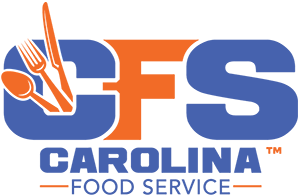
What Does a Food Distributor Do?

Food distribution services are one of the essential stages in a food service supply chain. A food service supply chain refers to all the processes that take place between when a food item is produced and when it gets to the consumer via a food service outlet. The main stages in this chain are production, handling and storage, distribution and logistics, and consumption.
Food distribution services form an important link between producers and consumers. The food distributor brokers food delivery from producers, processors, and manufacturers to food services like restaurants, convenience stores, chefs, hotels, hospitals, cafeterias, restaurants, schools, etc.
Some food distributors may focus on one type of food product, say, seafood. Others may decide to work with only one manufacturer. However, most food distribution services are independent and deliver a wide range of products to their clients.
Food distributors perform many functions that benefit the food industry. This article will discuss some of the roles of a food distributor.
Who Is a Food Distributor?
A food distributor offers the services of food distribution. Food distribution involves the movement of food from farms, production centers, and large-scale manufacturers to retailers and consumers.
Large establishments like shopping malls, restaurant chains, and food service providers for schools, hospitals, and other businesses depend on distributors to help acquire the many foods and ingredients they need for smooth operation. For example, a large restaurant does not have the time to buy products from hundreds of farmers.
Also, most farmers do not even produce enough to make it worthwhile for a large business to purchase directly from them. This is where food distributors come in. They form relationships with all of these production outlets and bring together all of their products so they can be readily sold in bulk.
More than food products, distributors also supply items that aid food consumption. They are just as important as other stages of the supply chain. Some distributors transport the food hundreds of miles to get to their consumers.
Food distributors vary depending on their mode of operation. Below are the different types of distributors
Types of Distributors
There are several types of distributors when it comes to food service.
Redistributors
These types of distributors do not sell directly to food service outlets. Instead, they function by purchasing a large number of food products directly from farms and large-scale manufacturers. Then, they distribute smaller amounts of purchased goods to small-scale foodservice businesses that simply can't handle larger bulk quantities.
Specialty Distributors
Specialty distributors specialize in the distribution of a specific category of products. This specialty area requires extra time and detail, such as seafood.
They do this to avoid such problems as cross-contamination. While these niches might be small, some businesses need specialty distributors to thrive.
Cash and Carry Distributors
Cash-and-carry distributors are not in the business of transporting their food products. On the contrary, these types of food distribution services operate large warehouses where food service outlets can pick out their desired items for purchase. Caterers, nonprofits, and restaurants predominantly use cash-and-carry distributors.
Broadline Distributors
These are the most common food service distributors. They purchase and distribute larger volumes of a wide range of products and are most often used by grocery stores and other larger retail food service chains and businesses. Due to the massive amount of products they control, they are able to offer better discounts and pricing options for those who buy in increased volumes.
What Do Food Distributors Do?
Much of the functions of a food distributor involve the purchase of food materials in large quantities in a bid to dispense them to various food service outlets. As a result, food distributors offer convenience to restaurateurs and retailers, saving them the trouble of purchasing food products from several individual vendors and coordinating the logistics of multiple orders and deliveries.
Many large farms and manufacturers outsource their logistics and utilize the services of food distributors. By hiring food service distributors, it is more convenient. They make fewer large deliveries rather than multiple small deliveries. This helps them focus solely on the production of quality food products.
Some food distributors work by receiving orders first before going all out to get the food products for food services. Others have large warehouses that store already purchased goods and can deliver client orders immediately.
Using warehouses also means that food distributors have handling and storage functions. They ensure that whatever food product is purchased is stored carefully to avoid spoilage and waste. They also follow health guidelines for quality assurance.
Top food distribution services communicate with their clients effectively, ensuring that the product is delivered promptly. This is important, so food waste is avoided. Distributors also help food services, and other retailers discover new products that benefit their businesses.
Advantages of Food Distributors
The following are the benefits of working with food distributors:
Convenience for Both Producers and Food Services
Food distributors offer many benefits to both manufacturers and retailers of food. On the side of the manufacturers, distributors take away the struggle of having to sell directly and manage relationships with individual food service operators.
Food services use more than one type of food product. Having to order from individual manufacturers is hectic. Distribution services allow food retailers to get their desired goods from one place and on time.
Marketing and Selling
Most food distributors are independent, which makes it easy for manufacturers and producers to create a supply chain by simply hiring a distributor that caters to their specific needs. Distributors don’t just sell these products, they can also help manufacturers to market new and existing products to consumers.
Transportation
Again, distributors also assist producers and consumers in the transport and logistics of products. Especially small farmers with lands and production centers far from where the products are needed.
Final Thoughts
The business function of any distributor is to be an intermediary between food producers and food operators, like retailers or restaurants. They provide the necessary flow needed in the food supply chain. Without them, access to food won’t be easy or efficient.
If you’re a restaurant owner looking for food distribution services in North Carolina or South Carolina, contact Carolina Food Service. Our team is always ready and happy to help potential and existing customers. We’ll work directly with you to find the products you need to keep your business thriving.